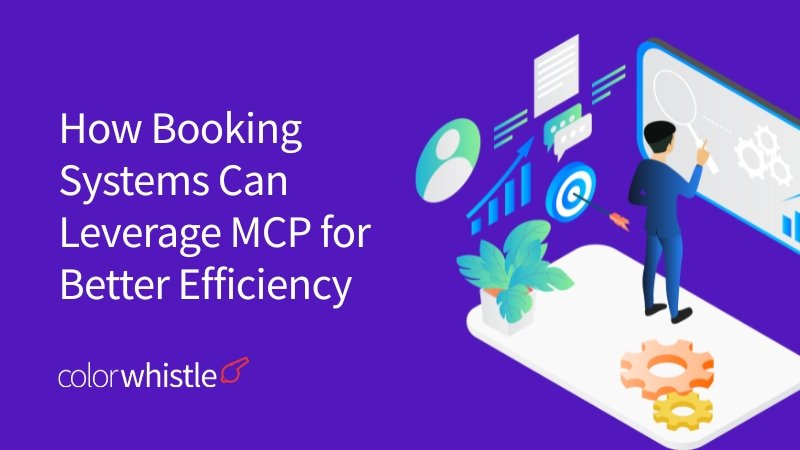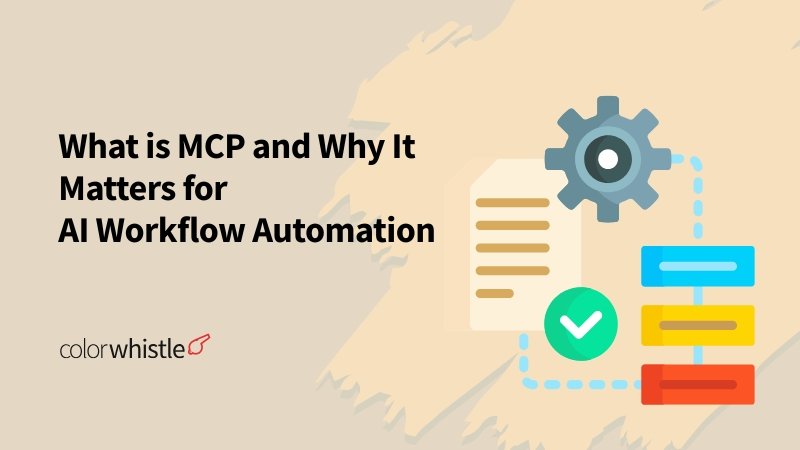AI Summary
Key Highlights of MCP Enhancing Shopify Store Automation
This post explores how the Model Context Protocol (MCP) revolutionizes Shopify stores by enabling AI tools to access live store data securely and in real time. The key insight: MCP bridges AI with e-commerce context, automating tasks, improving customer experiences, and boosting SEO without complex integrations. Targeted at Shopify merchants and developers, it promises smarter inventory management, personalized shopping, and actionable growth insights. The blog details implementation steps, strategic recommendations, and benefits such as reduced manual work and enterprise-grade AI accessibility. Ultimately, MCP empowers Shopify stores to operate efficiently, meet customer expectations, and scale competitively in a fast-evolving market.
By 2027, MCP is projected to power over 75% of AI-commerce integrations worldwide, reflecting widespread industry recognition of its transformative potential.
Modern e-commerce teams are under constant pressure. Customers expect instant responses, real-time order updates, and faster deliveries, while merchants are still forced to manage fragmented systems, manual workflows, and disconnected tools. This gap between customer expectations and operational reality leads to inefficiencies, delayed decisions, and lost revenue opportunities.
The Model Context Protocol (MCP) addresses this challenge at its core. Introduced by Shopify as an open standard, MCP enables secure, real-time communication between e-commerce platforms and AI systems. Instead of relying on isolated apps or shallow automations, MCP allows AI models to directly understand store context—such as products, orders, inventory, and customer data—without compromising security or accuracy.
By implementing MCP, businesses can move beyond task-based automation and toward intelligent commerce operations. AI can assist with faster decision-making, proactive customer support, and scalable workflows that adapt as the business grows. The result is an e-commerce store that runs more efficiently, responds instantly, and delivers the seamless experience modern customers expect—without increasing operational complexity.
What is MCP in Shopify?
MCP stands for Model Context Protocol, a standardized interface that connects AI tools directly to Shopify’s eCommerce data. It enables AI assistants to access, interpret, and act on store data (products, orders, customers) without complex custom coding or integrations. This universal protocol streamlines app development and brings enterprise-grade AI functions to all merchants.
TL;DR
This blog explores how Shopify’s Model Context Protocol (MCP) empowers merchants with AI automation, real-time data access, personalized shopping, SEO optimization, and streamlined eCommerce operations. Learn how MCP simplifies integrations, boosts efficiency, and drives growth for Shopify stores of all sizes.
How MCP Enhances Shopify Stores
The Model Context Protocol (MCP) makes Shopify stores smarter by acting as a bridge between AI tools and store data. It connects directly with your products, customers, inventory, and orders, so AI can work with real-time information. This means you can automate tasks, improve efficiency, and get powerful AI-driven features for your store all without the hassle of building custom integrations.
1. Real-Time Data Access and Automation
With MCP, AI tools can read live data from your store, such as inventory, prices, orders, and customer preferences. This allows for:
- Automatic product updates when stock changes
- Smarter inventory planning using sales trends
- Proactive customer service with real-time answers
This reduces manual work and keeps operations accurate.
2. Better Customer Experiences
MCP helps Shopify stores create more personalized shopping journeys.
- AI chatbots can instantly answer questions about orders or returns
- Shoppers get tailored recommendations and promotions
- Every interaction feels relevant and timely
The result: happier customers and more repeat sales.
3. SEO and Content Optimization
MCP-powered AI can automatically optimize store content.
- Product titles, descriptions, and metadata update based on live data
- SEO strategies adjust as inventory and trends change
- Marketing content stays fresh without manual edits
This helps your store rank higher on search engines and attract more traffic.
Also Read
4. Easier Store Operations
MCP makes it possible to set up advanced automations without complexity.
- Dynamic pricing based on demand
- Smarter inventory management across warehouses
- Automatic customer segmentation for targeted marketing
These workflows save time, reduce errors, and make scaling simpler.
Check our recent blog on MCP:
5. Benefits for Developers and Merchants
- For developers: MCP removes the need for custom integrations by offering a universal way to work with Shopify data
- For merchants: Even small and medium-sized stores can use enterprise-level AI tools without huge costs or tech teams
This levels the playing field with bigger retailers.
6. Actionable Insights for Growth
MCP doesn’t just automate tasks—it helps you make smarter business decisions.
- AI can analyze sales patterns to suggest new products or promotions
- Forecasting tools predict demand spikes and inventory needs
- Data-driven insights enable targeted marketing campaigns and higher ROI
By leveraging MCP, Shopify store owners gain a strategic advantage, turning everyday operations into growth opportunities.
Implementation Overview
The implementation of Model Context Protocol (MCP) for Shopify stores involves setting up a client-server architecture that allows AI assistants to interact directly and securely with live Shopify commerce data, enabling intelligent automation and enhanced customer experiences.
The process generally requires technical setup but can also be managed through specialized services.
Architecture Components
MCP Client: This is usually a Shopify app that acts as a middle layer, forwarding AI model requests to the MCP servers and executing commands back to the store (e.g., updating inventory, managing carts).
MCP Servers: These servers provide structured API endpoints giving AI assistants access to Shopify’s catalog, cart, order, and customer data in a standardized format.
Basic Setup Steps
- Server Environment: Provision a cloud server (AWS, Azure, Google Cloud) configured for availability and low latency to host the MCP server software
- Install MCP Server: Developers can set up the server using tools such as the Shopify Dev MCP package, often via command line
- Authenticate with Shopify: Provide Shopify API credentials (API key, password, access token) in environment configuration to enable secure API calls by the MCP server
- Launch Server: Start the MCP server which will then mediate requests between AI assistants and Shopify data sources
- Develop/Install MCP Client: Build or install the Shopify app (client) that communicates with the MCP server and powers automated workflows or chat functionalities
- Configure Workflows and UI: Define automation logic, such as product discovery, cart management, and order tracking. Style the customer chat UI to align with the store brand
Developer and Merchant Benefits
- Reduced integration complexity compared to custom APIs
- Faster development and deployment cycles for AI-driven eCommerce features
- Access to advanced capabilities like natural language search, order management, and personalized customer support
- Scalability and adaptability with evolving AI technologies
Strategic Recommendations for Leadership Teams
Make AI with MCP a Priority
Adopt the Model Context Protocol (MCP) to give AI tools easy, real-time access to your Shopify data. This cuts down on complex integrations and helps you get faster results from AI features.
Improve Product and Inventory Data
Keep product descriptions clear, inventory accurate, and product relationships well-defined. Good data helps AI give better recommendations and improves customer experience.
Focus on the Customer First
Use MCP-powered AI to personalize shopping—like answering customer questions instantly, suggesting the right products, and creating tailored offers. This builds trust and drives more sales.
Also Read
Track and Improve Constantly
Monitor how AI is being used, how it affects sales, and how accurate the responses are. Use this information to fine-tune your workflows and keep the shopping experience smooth.
Protect Data and Privacy
Use strong security measures like authentication, rate limiting, and data filtering. This ensures customer information stays safe and compliant while using MCP.
Measuring Business Impact and ROI
Adopting the Model Context Protocol (MCP) in a Shopify store is not just about automation, it’s about measurable outcomes. Here’s how merchants can track success:
- Operational Efficiency: Reduction in manual tasks like product updates, inventory sync, and support queries
- Customer Experience Improvements: Faster response times, higher engagement, and better personalization
- Sales & Revenue Growth: Increased conversion rates, higher AOV (Average Order Value), and more revenue
- Cost Savings: Reduced dependency on staff for repetitive tasks
Wrap-Up
The Model Context Protocol (MCP) makes Shopify stores smarter and easier to run. By giving AI direct access to store data, it helps automate tasks, improve customer experiences, boost SEO, and reduce manual work.
For merchants, this means more time to focus on growth and happier customers. No matter the store size, MCP makes advanced AI tools simple, secure, and accessible helping every Shopify business stay competitive in today’s fast-moving eCommerce world.
Browse our ColorWhistle page for more related content and learn about our services. To contact us and learn more about our digital marketing services, please visit our Contact Us page.
Frequently Asked Questions
How does MCP differ from traditional Shopify integrations?
Traditional integrations often require custom coding or APIs. MCP provides a universal, standardized protocol, making AI integrations faster, safer, and more scalable.
Is MCP secure?
Yes. MCP uses secure authentication and permissions, so only approved AI tools can access store data. Merchants control what data is shared.
Is MCP only for large Shopify stores?
No. MCP is designed to help small and medium-sized merchants access enterprise-grade AI capabilities, leveling the playing field with bigger retailers.
Which AI models work with MCP?
MCP supports diverse AI agents including ChatGPT, Claude, Perplexity, and custom models, ensuring broad compatibility.
What’s Next?
Now that you’ve had the chance to explore our blog, it’s time to take the next step and see what opportunities await!





